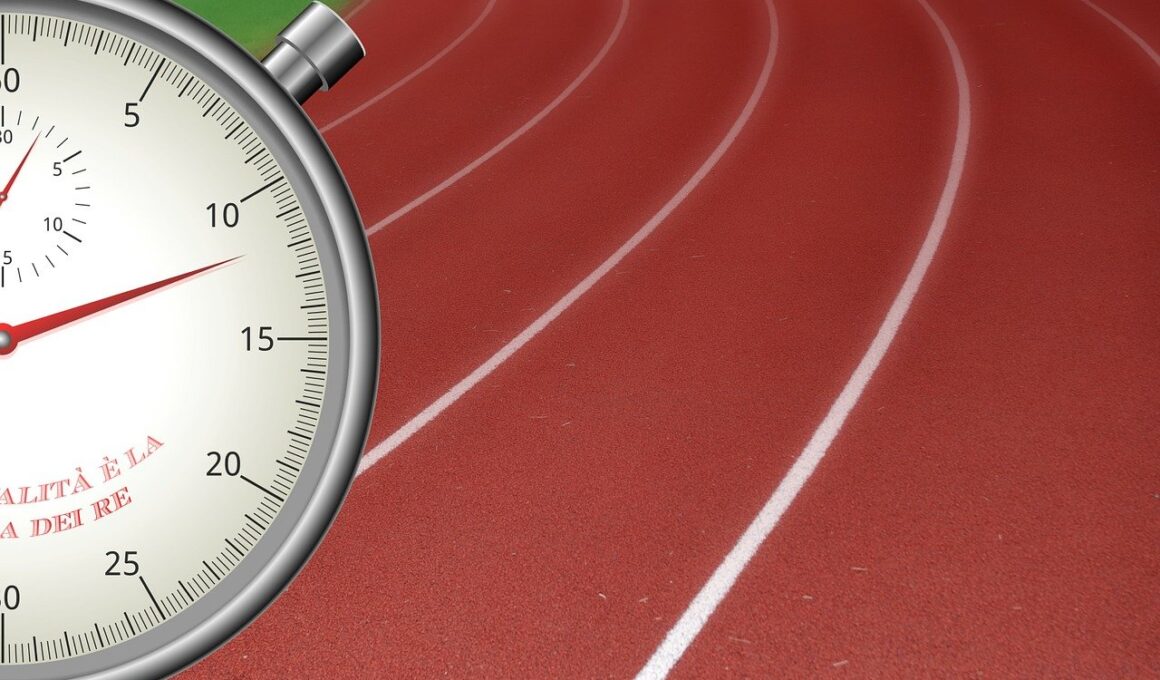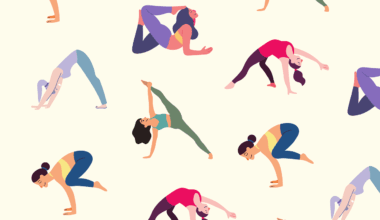Mistakes in Selecting the Right Fitness Competition Category
Selecting the right fitness competition category is crucial for both performance and satisfaction. A significant mistake many athletes make is not considering their own strengths and weaknesses. Each competition category requires specific skills, strengths, and conditioning levels. Understand the different categories available, such as bodybuilding, powerlifting, or cross-training competitions, to make an informed decision. Additionally, evaluate your training regimen to ensure it aligns with the requirements of the chosen category. A mismatch could lead to underperformance, frustration, and injury. Research the history and standards of the category you are interested in, as it can provide insights into what judges and competitors expect. Ask for advice from experienced athletes or coaches who have participated in similar events. Remember, each category has unique competitive criteria including physique, technique, and overall performance. Therefore, selecting one that matches your skills can enhance your chances of success. Make a list of your strengths and compare them with the category’s demands, ensuring that you feel passionate and motivated to compete. Adequate preparation and goal-setting can significantly reduce the likelihood of making hasty decisions that lead to regret.
Another common mistake entails choosing a category based on external pressures or trends rather than personal alignment. Social media often showcases specific competitions that numerous athletes enter, sometimes leading individuals to engage in those categories without consideration for their individual preferences. Avoid allowing peer influence or societal expectations to dictate your choice. Instead, focus on what excites you and where you genuinely see yourself thriving. Moreover, too often participants overlook the importance of healthy competition standards. Some categories may emphasize aesthetics or unrealistic body images. Make sure to select a category that promotes not only health but also personal growth and fitness journey enjoyment. When individuals feel pressured, they often abandon their original fitness goals, and may potentially harm their physical and mental health. Thus, be truthful with yourself about your motivations for entering a competition. Would it be for personal achievement, community engagement, or professional aspirations? Understanding your ‘why’ can guide you toward a category that truly resonates with your ambitions. Evaluate what you want to gain from your experience, ensuring that it aligns with your value system before entering any competition.
Ignoring the Importance of Nutrition
Nutrition plays a fundamental role in competing successfully, yet many athletes make the mistake of sidelining dietary needs. Selecting a fitness competition category without considering the nutritional demands may lead to severe consequences. Each competition type may necessitate a specific diet, whether it focuses on muscle retention, fat loss, or performance enhancement. Ignoring these nutritional components could hinder your performance, causing fatigue or incomplete recovery. Athletes should therefore integrate a thorough nutrition plan tailored to their chosen category, including macronutrient breakdowns and meal timing. Research nutritional practices of competitors in similar categories, or consult with a registered dietitian who specializes in sports nutrition. Monitoring your diet is vital. This could mean tracking your meals or using apps to manage calorie intake and nutritional quality. Prepare for your competition by experimenting with various foods during training, guaranteeing that your body gets the optimal support it needs while engaging in competitive events. Instead of compromising health for aesthetics or performance, remember that well-rounded nutrition enhances recovery, boosts energy, and ultimately optimizes performance when you step onto that competition floor.
Training inconsistencies can also lead to subpar performance. A frequent error competitors make is jumping between training styles or routines instead of maintaining consistency. Each fitness category requires specific training routines that refine necessary skills, strength, and stamina. For example, a powerlifting competitor must focus on heavy lifts, while a bodybuilder may prioritize hypertrophy training. Therefore, it’s vital to develop a structured training regimen that aligns with the competition’s requirements. Establish a training schedule that routinely focuses not only on strength but also the endurance aspects of your competition. Additionally, avoid the mistake of neglecting rest periods and recovery strategies. Rest days are crucial for muscle repair, especially during intense preparing phases, allowing you to perform at peak energy levels. Examine your overall progress frequently and adjust your training plan as necessary based on your advancements. Monitoring physical indicators helps identify overtraining or lack of progress, allowing timely intervention. Combining tailored training with adequate recovery will ultimately prepare you for your envisioned category, ensuring you are primed and ready to excel.
Neglecting Mental Preparation
Mental preparation is vital, yet athletes often overlook this aspect in their competition planning. A common mistake is assuming physical readiness equates to a successful competition. Competitive events can be psychologically taxing, potentially creating anxiety or overthinking before the event. Engage in regular mental training by practicing techniques such as visualization or mindfulness. By creating mental resilience, you not only boost confidence but also prepare for unexpected challenges. Developing a positive mindset can greatly enhance your performance, so consider implementing meditation or relaxation responses in training routines. Set attainable goals for yourself, both short-term and long-term, to establish clear benchmarks for your competition journey. Partake in mock competitions to dialogue with yourself about handling various scenarios, pressures, and expectations. Learning how to remain calm in competitive situations can make a profound difference in your overall performance. Furthermore, connect with fellow athletes to share experiences and build a support system that fosters positive mental health. Remember, competition is not solely about physical prowess but also the psychological strength that propels you toward success.
Lastly, consider the logistical aspects often neglected in fitness competition planning. One common error involves failing to research and understand registration requirements along with competition rules. Each fitness category may have varying regulations regarding attire, equipment, age categories, and fees. Familiarize yourself with these rules to ensure compliance and prevent any last-minute surprises that could compromise your entry. Failure to comply might result in disqualification, disheartening participants preparing for months. Additionally, when selecting a competition, evaluate location logistics, including travel arrangements and accommodation resources. Assessing these factors aids in planning not only your competition day but your preparation leading up to it. Pacing yourself also becomes vital as last-minute commitments may negatively impact your practice routines. Create a calendar for all critical dates, such as registration deadlines and event day schedules, to ensure smooth participation without unnecessary stress. Planning effectively decreases anxiety, allowing more focus on achieving optimal performance while competing. Logistical readiness improves overall competition experience, paving the path to success down the road.
In conclusion, avoiding these mistakes can facilitate a more rewarding experience for anyone entering fitness competitions. Awareness of personal strengths, diligent nutritional planning, and unwavering dedication to training while preparing mentally will enhance your journey to the competition stage. It’s critical to align choices with personal goals and values, leading to not just better performance, but also increased enjoyment throughout the preparation process. Involving community support or coaching can also aid individuals in pursuing their chosen categories more effectively. Moreover, attention to details related to preparation, logistics, and mental fortitude throughout competition preparation phases is essential. Remember, embarking on a fitness competition should be a celebration of your dedication and growth rather than a source of stress. Engage fully in your journey, setting realistic expectations while allowing your desire to shine through. Embrace every challenge as a chance to develop not just your skill level, but also strengthen your resilience and character. Whatever fitness journey you embark upon, continue to remember your unique capabilities, celebrate progress, and keep striving toward your personal best. Selecting the right fitness competition category is crucial for both performance and satisfaction. A significant mistake many athletes make is not considering their own strengths and weaknesses. Each competition category requires specific skills, strengths, and conditioning levels. Understand the different categories available, such as bodybuilding, powerlifting, or cross-training competitions, to make an informed decision. Additionally, evaluate your training regimen to ensure it aligns with the requirements of the chosen category. A mismatch could lead to underperformance, frustration, and injury. Research the history and standards of the category you are interested in, as it can provide insights into what judges and competitors expect. Ask for advice from experienced athletes or coaches who have participated in similar events. Remember, each category has unique competitive criteria including physique, technique, and overall performance. Therefore, selecting one that matches your skills can enhance your chances of success. Make a list of your strengths and compare them with the category’s demands, ensuring that you feel passionate and motivated to compete. Adequate preparation and goal-setting can significantly reduce the likelihood of making hasty decisions that lead to regret.


